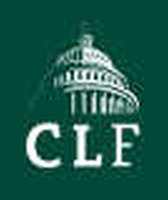Stand up for the facts!
Our only agenda is to publish the truth so you can be an informed participant in democracy.
We need your help.
I would like to contribute

President Barack Obama shakes hands with Richard Cordray Jan. 4 as he announces his recess of Cordray as the first director of the Consumer Financial Protection Bureau.
Whether appropriately bold or outrageous, President Barack Obama stirred up the dust when he used a recess appointment to make former Ohio Attorney General Richard Cordray the nation’s consumer financial cop.
For months, Republicans had blocked Cordray’s nomination to head the Consumer Financial Protection Bureau. So when the Senate was on its winter break, Obama invoked his authority to bypass the Senate during recesses and appoint his nominee.
Was Obama’s action unconstitutional since, in at least one manner of speaking, the Senate was still holding regular sessions and had never actually declared a recess? Congressional Republicans say so. Democrats and the White House disagree fiercely -- but PolitiFact Ohio is putting that matter aside for today.
We’re intrigued by a different argument put forth by Republican Sen. Rob Portman of Ohio: that Obama might have limited Cordray’s ability to do his full job because of the way he put the Ohioan in the director’s chair.
"The irony is that while this recess appointment may advance the White House’s political goals, it does nothing to advance the work of the CFPB," Portman said in a prepared statement the afternoon of Jan. 4, after Obama announced he was appointing Cordray. "The statute creating the CFPB makes clear that only Senate confirmation of a director – not a recess appointment – can activate the new powers of this agency to regulate consumer transactions with Main Street businesses."
Portman, an attorney, was referring to the Dodd-Frank financial reform legislation of 2010, which created the consumer agency and split its duties. Starting in late July of 2011, this single agency would take over duties previously held by an assortment of other, often disconnected agencies that regulated consumer loans and credit cards issued by banks. But that excluded so-called non-bank lenders, such as some student loan companies, mortgage brokers and payday lending operations.
Under the legislation, the agency could not pick up those additional duties and write new rules for those industries until it had a director in place. That’s why Obama and congressional Democrats had been so adamant about installing a director. They said they wanted the consumer bureau to be able to do its full job.
Now it could, Obama said on Jan. 4.
Countered Portman: Not so fast.
Under the language in Dodd-Frank, Portman said, only a Senate-confirmed nominee "can activate the new powers of this agency to regulate consumer transactions with Main Street businesses." Cordray was not Senate-confirmed.
To make sense of this dispute, we started by looking at key sections of the Dodd-Frank bill. The first, Section 1011, says the Consumer Financial Protection Bureau’s director "shall be appointed by the President, by and with the advice and consent of the Senate."
That’s a fairly common qualification written into laws establishing presidentially nominated positions. Curious as to whether it appeared in legislation that might pop up in analogous disputes, we turned to a statute written in 1945, the United Nations Participation Act, that provided for a United States ambassador and others to serve at the United Nations. The U.N. ambassador’s job, too, required the advice and consent of the Senate, according to the legislation.
If you read that literally, you’d have to believe that President George W. Bush violated this statute in 2005 when he used a recess appointment to get around a Senate blockade on U.N. Ambassador John Bolton. Yet you didn’t hear such claims, because of something several legal authorities inside and outside of Congress told us: That language is merely a restatement of the requirement to get the Senate’s advice and consent found in Article II, Section 3 of the Constitution..
It is not a full restatement of the Constitutional provision, however, because it does not mention the right to make a recess appointment, which is laid out in the section’s next paragraph. More importantly, even if the bill’s language expresses Congress’s wish, it cannot override the Constitution.
Back to Dodd Frank, Congress never intended to tie the president’s hands in an unconstitutional matter. That’s at least what Rep. Barney Frank of Massachusetts, the House Democrat whose name is on the bill, told us in an interview. Said a Democratic Senate aide familiar with the bill’s drafting: This language "is as boilerplate as it gets. ... Congress had no intention of interfering with the president's Constitutional authorities and we are confident that this appointment will stand up to any and all court challenges."
White House spokesman Eric Schultz put it similarly. "The CFPB's authorizing statute does not limit the president's ability to exercise his constitutional power to appoint a director during a recess," he told us in an email. "The CFPB statute, like other statutes, makes clear that the director is a presidentially-appointed, Senate-confirmed position, but it does not preclude a recess-appointed director from serving."
Yet that’s not all Portman had in making his case.
Remember when we said the consumer bureau could not regulate non-bank institutions until it had a director in place? You might wonder how it could function at all before it had a full-time director, but Dodd-Frank assured that the Treasury secretary could oversee the bureau between its opening and a director’s seating. Dodd-Frank also spelled out what the bureau could and could not do while under Treasury -- the bank versus non-bank oversight, for example.
And Dodd Frank said, in Section 1066: "The Secretary is authorized to perform the functions of the Bureau under this subtitle until the Director of the Bureau is confirmed by the Senate in accordance with section 1011."
This is central to Portman’s point -- that, as he says, only a Senate-confirmed nominee "can activate the new powers of this agency to regulate consumer transactions with Main Street businesses."
Portman’s office and some others noted that in January 2011, the inspector generals for the Treasury Department and Federal Reserve spelled out these limited duties in a 22-page letter to the chairmen of the Senate and House financial services committees. The letter said that the Treasury Secretary’s limited authority "terminates when a director is confirmed by the Senate."
No director has been confirmed. Doesn’t that mean, then, that the bureau still lacks authority over non-bank institutions?
Yes, says Portman. John Berlau, the director of the Center for Investors and Entrepreneurs at the Washington-based Competitive Enterprise Institute, agrees, according to the conservative publication Human Events.
"Portman seems to be right on the money, he is right to zero in on what the letter of the law is," Human Events quoted Berlau as saying.
Berlau is not an attorney, although he told us he consulted with his organization’s attorneys. We talked with another attorney, law professor Todd Zywicki of George Mason University, who also shared Portman’s view, first in a blog entry and then in a telephone interview with PolitiFact Ohio.
"It seems to me," Zywicki told us, "that the answer is no, Cordray cannot" take on the duties of non-bank lending and credit regulation. "It seems pretty clear to me what they are saying" in the Dodd Frank legislation, "which is that these powers do not transfer until certain things happen." The chief thing that needs to happen is Senate confirmation, he said.
The White House, congressional Democrats and their allies say that Portman and like-minded readers of this legislation are wrong.
They note that even in the bill’s section that kept the agency from dealing with non-bank institutions without a Senate-confirmed director, the language said this requirement was "in accordance with Section 1011." And that’s the section that establishes the consumer bureau and provides for a director "with the advice and consent of the Senate."
That "in accordance with Section 1011" language is important, they said, because Section 1011 implicitly restated the Constitution’s advise-and-consent primacy -- even if the Dodd-Frank bill didn’t specifically spell out the full Constitutional language that also allows for recess appointments. "So I think they are wrong as a matter of the statute," said David Arkush, director of Public Citizen’s Congress Watch program and an attorney widely regarded as an authority on this language. "But even if it wasn’t, it would be unconstitutional."
But what about the inspector generals’ letter? Didn’t it say that the Treasury secretary has limited authority over the agency -- authority that did not include non-bank supervision -- and that it would end "when a director is confirmed by the Senate?"
Democrats said this language, too, has been misinterpreted, because it was meant only to spell out the limits of Treasury’s supervision, and not of an appointed successor. Furthermore, they said, the letter was not a legally binding document like a statute or, even better, the Constitution.
There are other arguments but they go more deeply into the weeds. It’s worth noting, however, that the Congressional Research Service, which lawmakers rely on for authoritative advice, said in a footnote of a May 18 report: "Although the CFP Act requires the CFPB director to be confirmed by the Senate, the President could appoint a director temporarily without Senate confirmation through his constitutionally provided power to make recess appointments. ... A recess-appointed director likely would be considered to have all of the authorities that would be held by a Senate-confirmed director."
We also asked Cordray in a phone interview if his agency’s duties are limited because he lacked Senate confirmation, and he insisted: "With the director in place, we have our full authorities and we're looking forward to protecting consumers in both the non-bank and bank realms."
Who’s right, then?
These are lawyers arguing with lawyers, and even Frank, who says Cordray "absolutely" has full authority, said the courts may have to settle it.
Arkush is more skeptical, saying, "I think the argument that the agency does not have full power is so weak that I’d be surprised" if anyone sued on that point. "And if they did, they would not win."
PolitiFact usually judges political claims, not legal ones that are not yet litigated. Yet we find something particularly persuasive in this debate -- though not in Portman’s favor. That is, the note by Congress’s own research arm, the Congressional Research Service, or CRS.
David H. Carpenter, a CRS legislative attorney, wrote it as part of a report on limitations placed on the Treasury secretary by Congress, but he noted, as we said: "A recess-appointed director likely would be considered to have all of the authorities that would be held by a Senate-confirmed director."
That flies in the face of what Portman said in his claim; that the law makes clear that only Senate confirmation of a director can activate the new powers of this agency to regulate consumer transactions with Main Street businesses.
Yet, Portman and like-minded others say they have the statutes to support their claim. One of those others is a law professor.
PolitiFact Ohio can’t predict the future, and that’s what would have to happen to definitively check the accuracy of Portman’s claim.
For that reason we’re not rating it on the Truth-O-Meter. We’ll leave it to readers to decide.
Our Sources
Sen. Rob Portman, statement on Richard Cordray appointment to direct Consumer Financial Protection Bureau, Jan. 4, 2012
E-mail exchange with Sen. Rob Portman’s office, Jan. 4 through Jan. 6, 2012
Telephone interview with Richard Cordray, Jan. 4, 2012
Telephone interview with Rep. Barney Frank, Jan. 6, 2012
Dodd-Frank bill
Email exchange with White House communications staff, Jan. 6, 2011
Telephone interview with David Arkush, director, Public Citizen’s Congress Watch division, Jan. 6, 2012
Telephone interview with Todd Zywicki, law professor, George Mason University, Jan. 9, 2012
Congressional Research Service, "Limitations on the Secretary of the Treasury’s authority to exercise the powers of the Bureau of Consumer Financial Protection,"by David H. Carpenter, legislative attorney, May 18, 2011
Letter from inspectors general of Department of Treasury and Board of Governors of the Federal Reserve System to chairmen of Senate and House financial services committees, Jan. 10, 2011
United Nations Participation Act of 1945, from the Avalon Project, Yale Law School
Human Events, "Portman: Obama’s Cordray play won’t advance CFPB," by Neil W. McCabe, Jan. 4, 2012
National Archives, The Charters of Freedom, The Constitution of the United States: A Transcription
















































